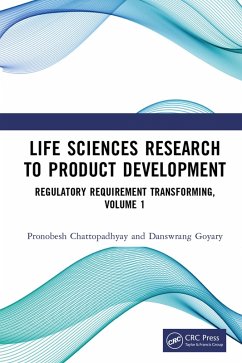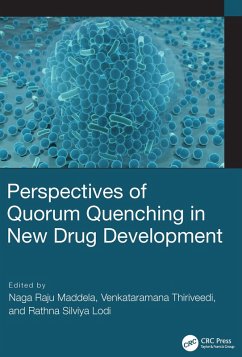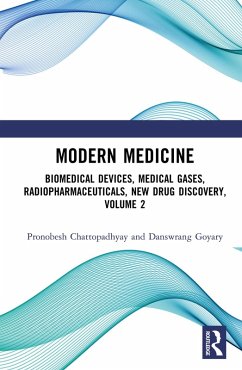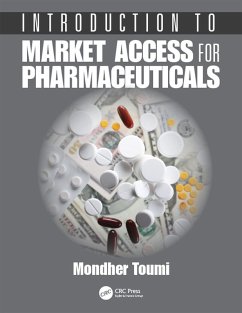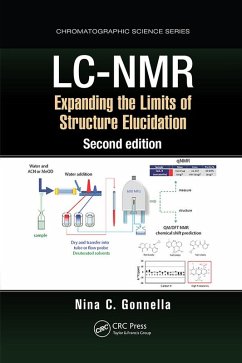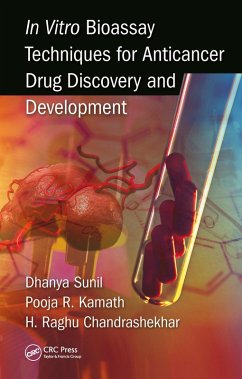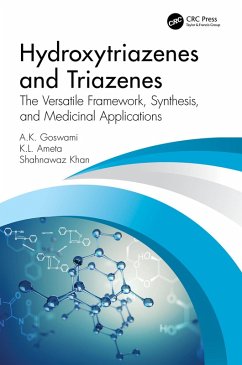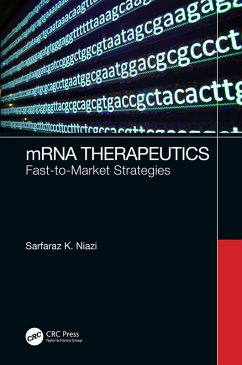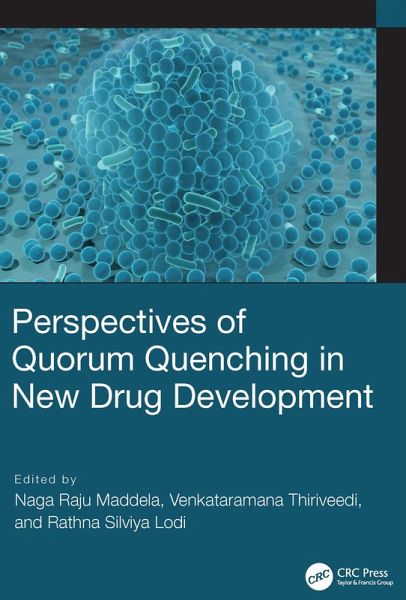
Perspectives of Quorum Quenching in New Drug Development (eBook, PDF)
Versandkostenfrei!
Sofort per Download lieferbar
49,95 €
inkl. MwSt.
Weitere Ausgaben:

PAYBACK Punkte
25 °P sammeln!
Antibiotic resistance in pathogen microorganisms is a major global concern, especially the formation of biofilms. Quorum quenching has been practically used to control biofilm growth, and this indicates a promising hope for the development of new drugs for the control of biofilm-forming pathogens. This book provides a single source of information about two issues: the biology of quorum sensing and quorum quenching, and the perspectives of quorum quenching in new drug development. The text covers the latest literature from the last ten years and insights into quorum quenching and its need in me...
Antibiotic resistance in pathogen microorganisms is a major global concern, especially the formation of biofilms. Quorum quenching has been practically used to control biofilm growth, and this indicates a promising hope for the development of new drugs for the control of biofilm-forming pathogens. This book provides a single source of information about two issues: the biology of quorum sensing and quorum quenching, and the perspectives of quorum quenching in new drug development. The text covers the latest literature from the last ten years and insights into quorum quenching and its need in medicine as an anti-virulence strategy.
Features:
Features:
- Exclusively focuses on quorum quenching and its ability to be used as an alternative to antibiotics in the control of multidrug-resistant pathogens.
- Reviews the latest literature and case studies of the last ten years in the field of quorum sensing and quorum quenching.
- Promotes a new approach to the development of the next generation of antibacterial drugs.
- In the wake of rising antibiotic drug resistance, it is crucial to develop an alternative approach to control bacterial infection diseases and quorum quenching appears to be a promising strategy in the development of new medicines.
Dieser Download kann aus rechtlichen Gründen nur mit Rechnungsadresse in A, B, BG, CY, CZ, D, DK, EW, E, FIN, F, GR, HR, H, IRL, I, LT, L, LR, M, NL, PL, P, R, S, SLO, SK ausgeliefert werden.




